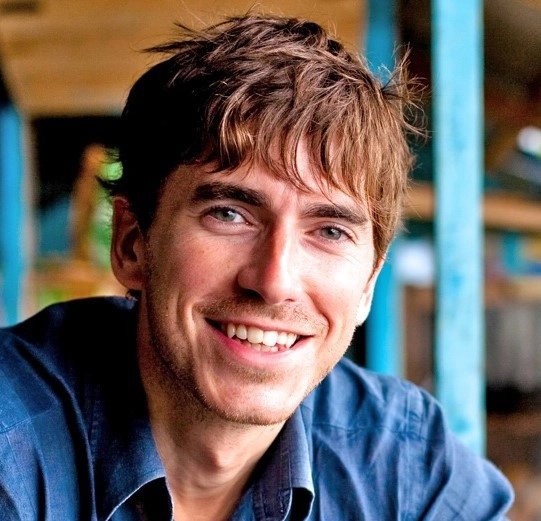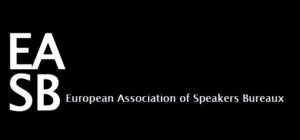Topics:
Fees:
*Fees are a guide only. Exact cost will be dependent on requirements and are subject to change.
Dan Cable
Dan Cable is Professor of Organisational Behaviour at London Business School. Dan research has been cited over 37,000 times, he is on Stanford University’s list of the top 2% most impactful researchers, and The Academy of Management Perspectives ranked Dan in the “Top 25 most influential management scholars.” Dan’s research and teaching focus on organisational culture, activating positive emotions, and getting employees into commitment instead of just compliance.
About Dan Cable
Dan’s newest book Exceptional helps people learn more about their best contribution and impact on others, so that they can unleash their potential. Alive at Work: The Neuroscience of Helping Your People Love What They Do helps leaders switch on the part of employees’ brains needed for innovation and resilience. He has edited two books and published more than 50 articles in top scientific journals (such as the Academy of Management Journal and Administrative Science Quarterly) and has been been featured in the Economist, Financial Times, Harvard Business Review, Wall Street Journal, CNBC, New York Times, Sloan Management Review, and Business Week.
Dan’s recent clients include Amazon, BMW, Capital One, Deloitte, Deutsche Bank, DHL, EY, Estee Lauder, Facebook, HSBC, Ikea, MetLife, NBC Universal, O2, Porsche Consulting, Prudential, PwC, Rabobank, Randstad, Roche, Rolls Royce, Siemens, and Twitter.
To book Keynote Speaker Dan Cable, contact The Speakers Agency on +44(0)1332 810481 or email enquiries@thespeakersagency.com
Dan’s speech topics include, but are not limited to:
The Psychology of sustainable change
Learning is not failure — but sometimes it can feel like it in the middle of the process. In fact, this is why so many personal and organizational change attempts fizzle out. We will reflect on the “chatter” that our brain use to “talk to us” during episodes of change, and the emotions we feel during this experience. As we talk about making change “the new normal”, we will cover three practical underlying principles of change as “make or break” investments: 1) the power of purpose, 2) learning mindset and investing in good pain, and 3) celebrating early wins. A key part of our discussion is the distinction between growth and achieving mindsets, and how achievement today using comfortable behaviors may lead to irrelevance tomorrow.
Confident vulnerability
How can you put your self-doubts to work for you? When leaders reveal their trip-ups and failures, they build a culture of psychological safety and are seen as more approachable. But being vulnerable isn’t easy. We will look at evidence-based approaches to showing vulnerability and building trust, without losing employees’ confidence. We’ll discuss the power of sharing some of your personal developmental journey, when you personally received constructive feedback that you needed to improve and adapt, which normalizes learning.
The Power of Purpose
We will discuss why purpose is important to humans, and why stories about purpose is so critical in inspiring employee commitment and resilience, particularly when change, innovation and creativity are necessary. Purpose also promotes health and well-being: when we feel a sense of purpose, our immune cells are more effective, leading to longer, better lives. We will discuss how leaders can help themselves and employees feel more purpose by enabling them to 1) play to their strengths and innovate at work, 2) balance urgent work with important work, and 3) personalize their stories about purpose in their work. I will introduce methods to expose the stories we are currently telling ourselves about the why off the work, and to think about other stories be more inspiring.
Neuroscience and Change
What does neuroscience tell us about creating sustainable change in our habits and our cultures? How can leaders trigger the helpful emotions of curiosity and excitement instead of anxiety and fear? We’ll discuss how our brains tells us that new activities are “not authentic” and what we can do about it. Finally, I can talk about how the brain “holds” its image of a self and we can activate our best selves more often.
What do people bring to work?
Great leaders inspire people to apply the best of themselves – their hands, their heads, and their hearts – toward a shared vision about how the organization excites customers. Great firms invest heavily making sure that their people reliably act and make decisions in ways that differentiate them from the competition. They implement ‘strange’ workforce systems that make employees act in noticeably better ways.
Other topics include:
- What do you bring to work?
- Creating a growth mindset culture
- The psychology of sustainable change
- Authentic leadership and the role of purpose
- Best self activation
- The power of purpose
- How do I create a culture of innovation?
Videos
Testimonials
"Dan delivers engaging and uplifting keynote speeches on enabling sustainable change and the audience has always left feeling highly motivated and inspired to help others be the best they can be."
PwC
"What separates Dan from the rest is his unconventional delivery. By intelligently using a powerful arsenal of concepts, relevant real-lie examples and analogies he was able to engage a team of very senior leaders from start to finish."
Coca-Cola
"His engaging way of teaching has made a big difference for the managers attending the training. The eye-opening points he makes on how we lead and what motivates people is something which is remembered long after the training."
Nordea
"Dan approached the crucial topic of change management in a unique way - starting from insights in best-in-class change examples and translating them into the business reality of his audience."
Carlsberg Group










